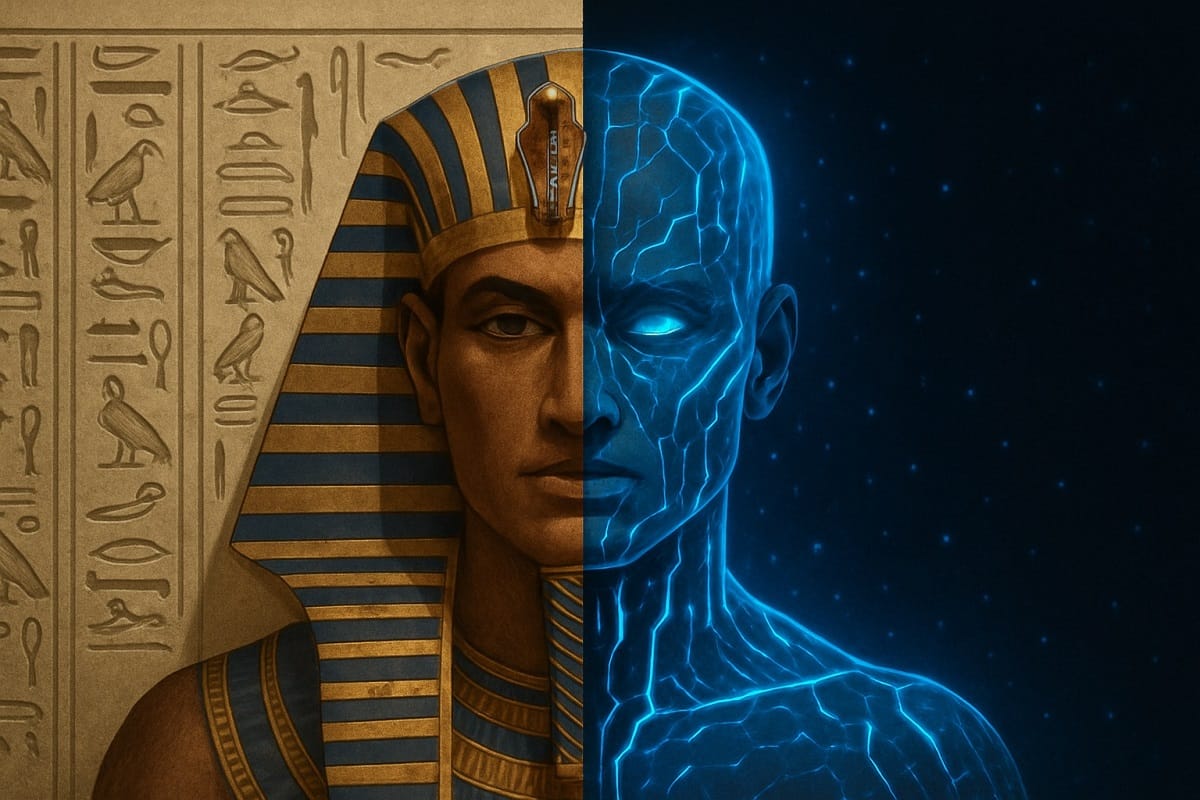
Are we ready to live forever?
Immortality would create whole new problems that we're ill-equipped to deal with.
For as long as humanity has existed, people have dreamed of immortality. We fear the prospect of our own deaths, we mourn our deceased loved ones, and we wish for a day when no one will have to suffer this fate.
The most common way of satisfying our wishes for immortality is with afterlife beliefs. Every religion, both those that have gone extinct and those that are still around, has had its own version of life after death, whether it's heaven and hell, reincarnation, or something more obscure.
These afterlife beliefs comfort believers by reassuring them that their lives don't end with death—but they've also inspired terrible acts, like holy wars and suicide bombings, by people who were eager to claim their promised heavenly reward by slaughtering the unbelievers.
Irreligious immortality
Even among irreligious people, however, the desire for immortality is often still present.
The transhumanists, for instance, seem to be largely atheists, yet they hope for physical immortality to be achieved with science. One common means by which they hope to achieve this is by having their bodies frozen after death, hoping that a more technologically advanced future will be able to revive them. The Alcor Life Extension Foundation, the best-known cryonics organization, has preserved several hundred frozen corpses.
Most probably, this is a pipe dream, and these frozen bodies will remain dead. The most advanced freezing technology that exists today still causes pervasive damage to the delicate structures of the brain, which is likely to be irreversible even with more advanced future technology. Mainstream scientists generally consider cryonics to be quackery.
Other transhumanists propose more ambitious solutions. For example, futurists like Ray Kurzweil believe that we'll soon have the ability to scan our brains and copy our minds into software, which we can upload to new bodies and stay alive that way. Sci-fi works like Altered Carbon were the first to depict this.
A related idea is that we might be able to cure aging, so that our original bodies will be able to simply keep going forever. The so-called “immortal jellyfish” apparently never dies of old age, which has given some researchers hope that this might one day be achievable for us too.
Too good to be true?
So far, all these proposals for immortality are flights of fancy. There's good reason to be skeptical of them. It's true that we might crack the problem someday, but so far, there's precious little evidence of success. Too much of it comes off as secularized religious claims, loosely patched over with very speculative technological promises.
If it does become possible, however, it would create some serious issues. What kind of people do we want to get ahold of immortality? As the most cutting-edge new technology tends to be very expensive and only available to the super-rich, this would create massive societal division almost overnight.
The most wealthy industrialists and world leaders would no doubt love to live forever, but that wouldn't necessarily be a positive for the rest of us. For example, Vladimir Putin of Russia and Xi Jinping of China were overheard discussing immortality at a military parade. For millions of oppressed people, there's some comfort in the thought that change must eventually come because their authoritarian rulers will die and be replaced one day. Changing that fact, and potentially creating literally eternal tyrannies, would be an unwelcome prospect.
The effect on a societal scale is also foreseeable. If there was an elite class of immortal rulers, that could cement a social hierarchy even more rigid than what now exists. If this were to happen, violent upheaval and war might become more common, since people below the elite class would be stuck there forever otherwise.
Practical problems with immortality
Even if an immortal existence is achievable, there would also be practical issues. Humans evolved to live for around eighty years on average. Our brains may just not be equipped to cope with centuries or millennia more. For instance, perhaps our memory capacity is finite. At some point, it may overload, and we'll completely forget the earlier stages of our lives.
There's also the threat of stagnation and population collapse. The most well-off countries are already experiencing a demographic transition, in which people begin having fewer children as they enjoy more comfortable lives. In fiction, we often see immortals who have few if any children, like J.R.R. Tolkien's immortal elvish race. The same thing could happen in reality.
To a degree, a lower population would not necessarily be a bad thing, although having a birth rate below replacement levels can pose problems for the future sustainability of society. Of course, with immortals around it would be different. If a large number of people died, though—such as in a war, a plague or a natural disaster—without children to replace them, this could be a catastrophic loss.
A society of immortals might also suffer from intense inertia, rejecting innovation and progress. When you don't fear dying of old age, what's the incentive to change things? Here again we can only speculate, yet it's an observable fact that many people become more stuck in their ways with old age. That might be an even more extreme factor in this scenario.
There's no way to know whether immortality of any kind will exist in the near future, or whether it will always be a sci-fi pipe dream. However, innovation has surprised us all before, giving rise to inventions once thought impossible. Just in case, it's not too early to start thinking about the implications, so if that day ever comes, we won't be taken by surprise and unprepared.
